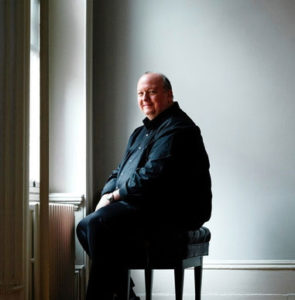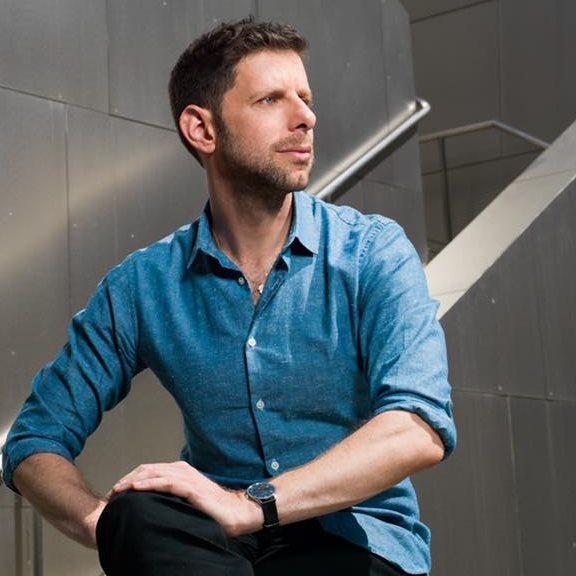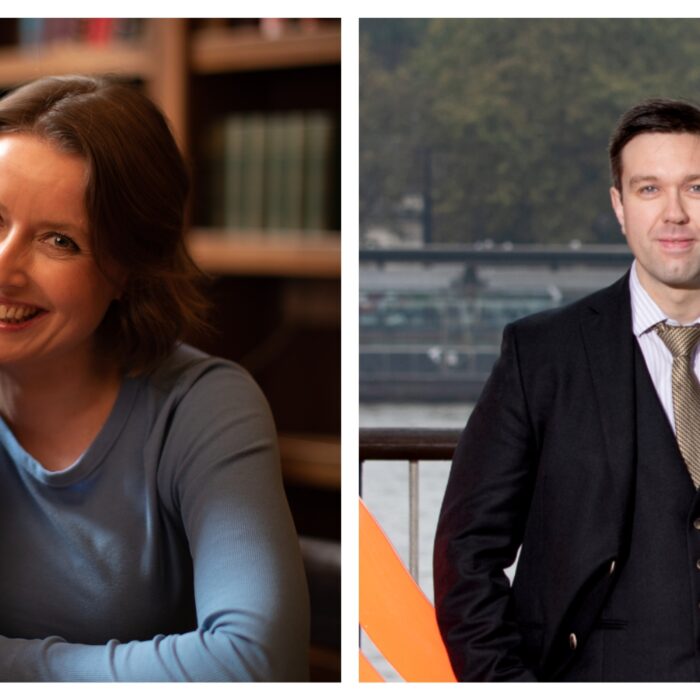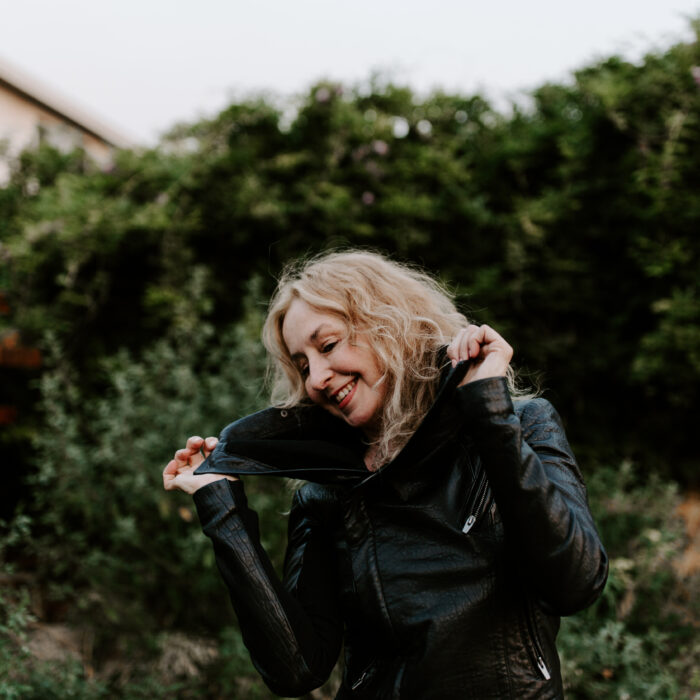
Q & A: Voice Teacher Bill Schuman on 30 Years at AVA & Receiving the Distinguished Achievement in the Arts Award
By Chris RuelOn Saturday, March 28th, the Academy of Vocal Arts will celebrate its 85th anniversary with BrAVA Philadelphia! For the first time 80 years, The Met Philadelphia stage will showcase some of the best-known singers in the world. The gala will honor the internationally recognized voice teacher Bill Schuman, bestowing upon him the AVA Distinguished Achievement in the Arts Award.
Schuman has taught at AVA for the past 30 years, and his students, past and present, include Marcello Giordani, Lisette Oropesa, Stephen Costello, Michael Fabiano, and Angela Meade; Meade will be performing at the gala.
In a recent interview with OperaWire, Schuman stated with a chuckle how he’s better at bossing others around than being in the limelight, working behind the scenes to guide singers from young artists to stage greats. He recounted how on a particular evening his voice teacher, Luisa Franceschi sat him down after a party and told him he didn’t have the personality to be a singer and that she would teach him how to teach. He went on to relate that in his heart, he knew what Franceschi said was true.
Thus was the beginning of a three-decade-long career during which singers trusted him with their gifts and, in return, many became of opera’s brightest stars. Schuman has been associated with the Metropolitan Opera Young Artist Program, the Curtis Institute of Music and was personally invited by Plácido Domingo to be one of the inaugural teachers at the Washington Opera Young Artist Program.
In this interview, Schuman reflects on his career journey leading up to being honored by the school he loves, how he views himself as a throwback to an earlier time in voice teaching, and the thrill of seeing those whom he has taught reach the highest level of success.
OperaWire: What would you say were the milestones leading to this special moment in your life?
Bill Schuman: There are three or four big milestones involving my career, involving opera, and involving AVA. The first one was meeting the teacher, Luisa Franceschi. She’s the one who took me from a musical theater performer to really understanding the operatic art form and guiding me on my way to teach; she was the biggest influence on that.
I came to New York and I was teaching, specializing in mostly Broadway and film stars. I had a few opera singers and that led to more opera singers. Then, all of a sudden, through the kindness of a couple of very important people in the business, I got recommended at AVA. So, that was another biggest milestone. I was hired at AVA 30 years ago which is quite shocking to think about; I was 31 years old and they took a risk on me.
AVA started to guide me more in my focus. I still was doing both worlds—the popular world and the opera world—but then, I got a student named Marcello Giordani. Getting Marcello really pushed me over to about 90 percent opera. Having a student of that level, a singer who developed from a boy who couldn’t get a role to the Met’s leading tenor cemented that. And now, this gala has to be one of the biggest milestones.
OW: Who is one person you might point to as somebody who kept you going along your journey?
BS: Luisa Franceschi was the pivotal one that set me on my path. The career I’ve had as a teacher is based on her; it was an old-fashioned apprenticeship with a legendary teacher. But I think that it’s been my own inner voice pushing me ahead and pulling me out of the valleys. I knew what I wanted, and I just kept going. I think singers are the same way.
OW: How would you characterize yourself as a teacher?
BS: That’s a hard thing. I think maybe it’s better to have other people do that. I will say I do think, because of my work with Luisa, and because she was a truly old-school teacher who had come from the era of great, great singers, I think I’m a bit of a throwback through the vocalises I do and through the way I develop voices, not using all the science.
I don’t think the science hurts the art form, but I do question how much it actually helps the aesthetics of the singing technique and the voices of today. I believe classical arts are true and they stand through time and that there’s not a lot of modern stuff that makes classical art better. There’s no proof that they made it better. So, I would say, I’m a throwback to another time of voice teaching.
OW: How do you measure personal success?
BS: It depends on who I’m working with. If I have a stage star or a big actor come to me because they have to sing in a movie or on Broadway, there’s a great reward in helping them. If you have a young musical theater actor or actress, as I had in the beloved Ann Crumb—who just passed away—she was an unknown when I trained her. Andrew Lloyd Webber wrote a show for her, and she became a huge star. That is rewarding, too.
With operatic students, you watch them grow and develop, and start careers. Not all go on to the Met, but a lot do. There’s a great success in knowing that you have been able to help them on that journey. There are so many different things, so let’s just say that it’s watching them progress on the journey that’s very rewarding.
OW: What are some core principles you try to instill in your students?
BS: I believe the number one thing is humility. I tell them that no matter how wonderful you are, no matter how wonderful you think you are, or how great the press says you are, there’s somebody in a church someplace who can outsing you completely.
And I think discipline; I try to instill discipline in them because I’m not there for their careers all the time. To be a great singer is like a prized athlete and without the discipline many, many great talents have gone by the wayside. Finally, curiosity about what’s needed for the career: curiosity of musical style, about music, about technique, and singing traditions. So, I think when I break it down to three things humility, discipline, and curiosity.
OW: Let’s say you’re sitting in an opera house or a theater and one of your former students is onstage; what’s going on in your head?
BS: I had to laugh at that because I don’t have that many former students. I’ve had a couple that I’ve had to end my teacher-student relationship with and I’m still very proud of their accomplishments and what we did together, but most of them are still coming to me on a regular basis, not every week—two or three times a year to have checkups or whatever. I have a student now, Lisette Oropesa, who has risen up to be a huge success. I might see her once or twice a year when she’s in New York—now she’s coming back to New York more often—but I can’t tell you how proud I am of her accomplishment; watching her. Those moments are incredible.
Of course, people like Angela Meade when I watch her go straight from AVA as a student to make a debut opposite Marcello Giordani and Dmitri Hvorostovsky in “Ernani” at the Met and have a triumph, there are no words you can express that. That’s something that very few teachers get to experience.
I’m very humbled, too, that these singers have trusted me, and they’ve trusted their most special gift to me to guide. When it comes to fruition, and I get to go see them perform, it’s a wonderful thing.
OW: The students who sing on to the big stages, what attributes do you believe they may have in common?
BS: The first thing I have to say is that I think they’re all charismatic people. There is a certain personal charisma that they all have. I mean at a certain level they all have the voice; it’s what else besides the voice. And they’re all charismatic personalities. They all have some charm; they all can get up in front of the public and the public wants to see them. There’s something about the unique personalities that come across the footlights.
The people that reach the biggest career success have developed some secure knowledge of what they need to do to sing at that level—what they need to do to take care of their health, take care of their technical abilities, and their musical preparation. It’s almost an inner knowledge or self-awareness of what they need to be there. If they don’t have that, they will fall out fast.
My admiration for opera singers is so high because of what they have to do with these two pieces of gristle in their throat and with their bodies. Every day they wake up with a different instrument; it’s amazing what they do. And the ones that really sustain it have developed that self-awareness and self-discipline, so I guess self-knowledge on top of everything.
OW: When your name is called to receive the Distinguished Achievement in the Arts Award at the BrAVA Gala, how will that feel?
BS: I’m going to be trying to fight back tears. I’m a big crier. But I’m going to be in disbelief that it’s been 30 years. I have to tell you; I work in the most wonderful place. AVA is a very, very special place and to be honest, I have the best colleagues, I have the greatest musical staff, I have people like Danielle Orlando who I cannot explain to you the respect I have for her as a musician and for who she is.
I have to thank Kevin McDowell because he’s the one who recruited me. He offered me a job I turned down and came back the next year and he changed my life. I owe him so much. He took a risk on a kid.
I don’t think any other institution in America has produced what we’ve produced in the last 30 years. There’ll be a lot of emotions as I get up there.



